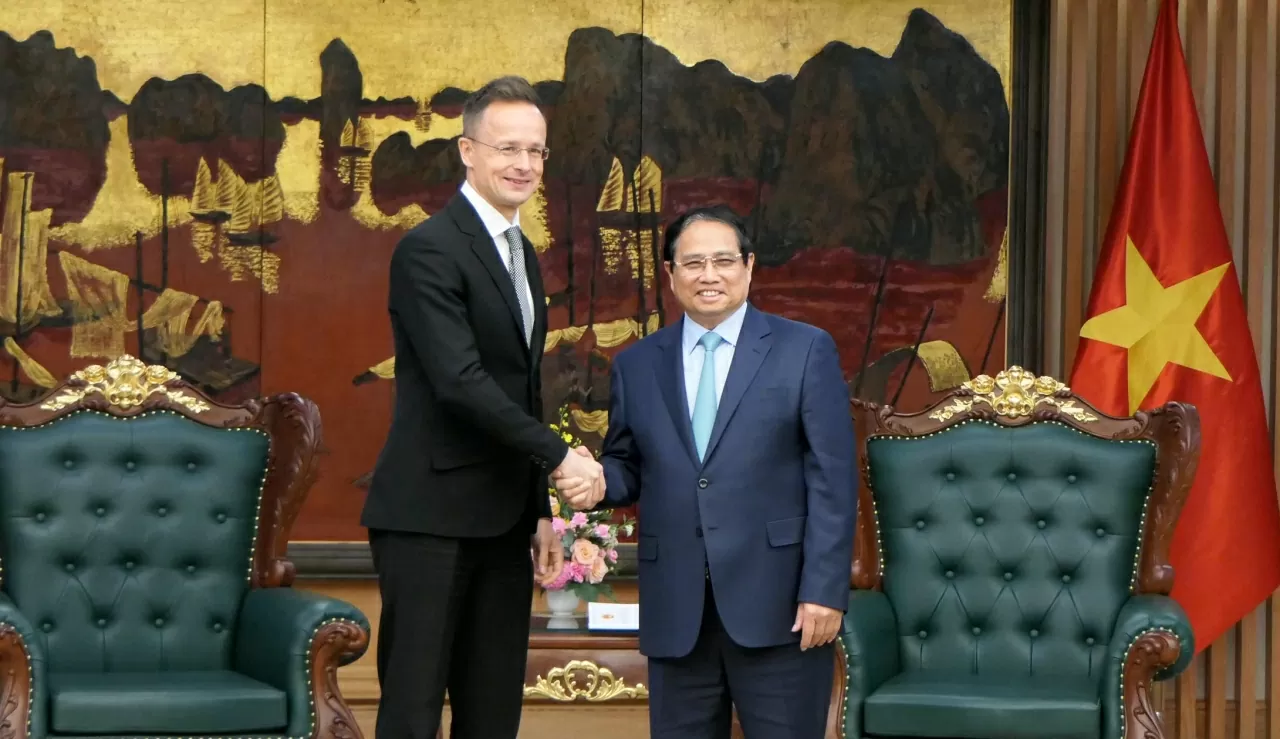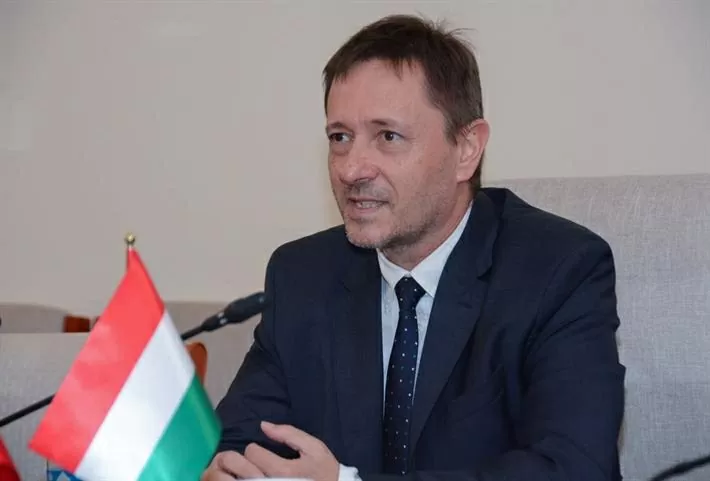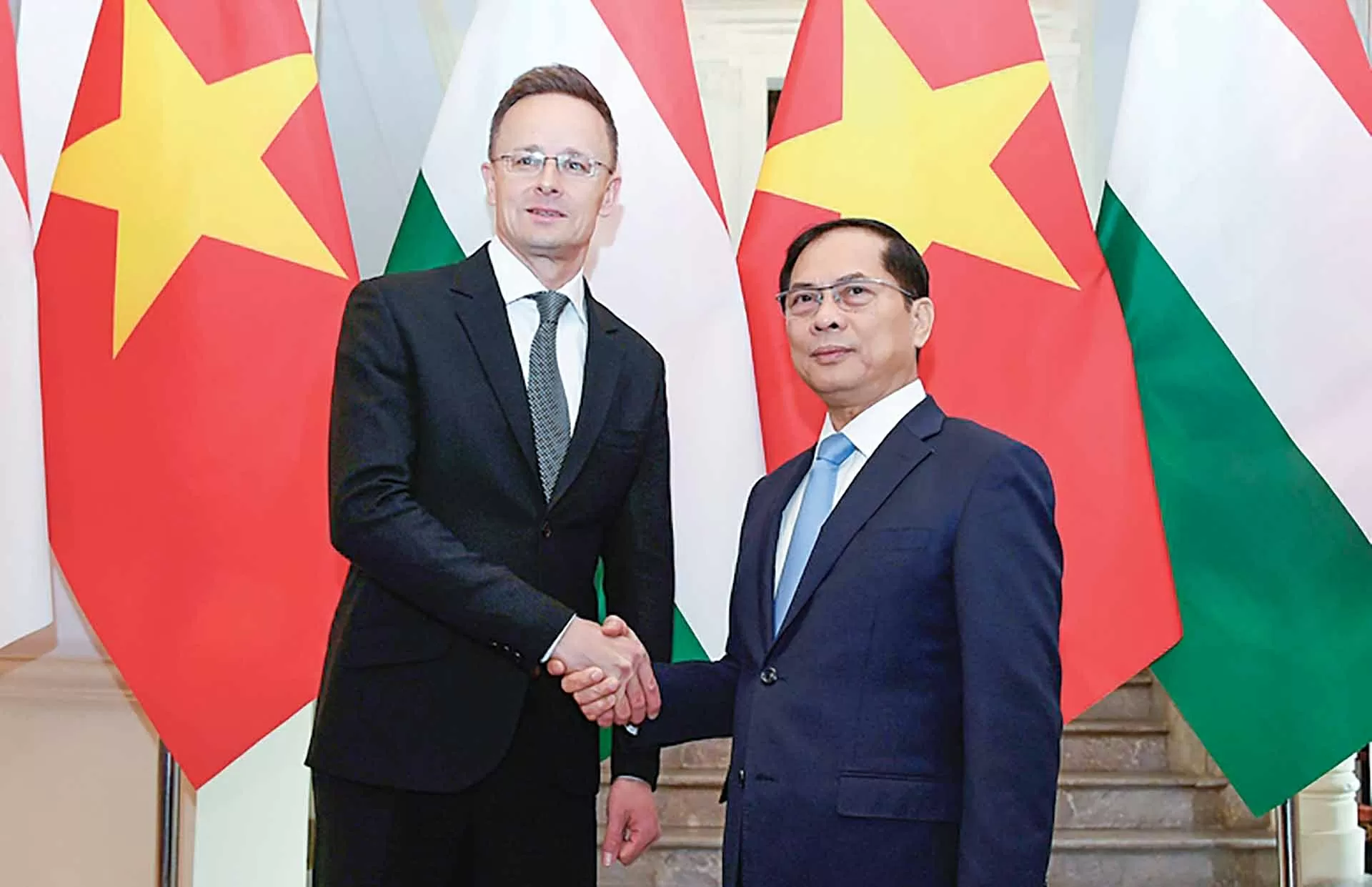
Highest level of diplomatic commitment to the traditional friendship and cooperation between Hungary and Vietnam: Hungarian Ambassador
Latest
 |
| Prime Minister Pham Minh Chinh received Hungarian Minister of Foreign Affairs and Trade Szijjártó Péter during his visit to Vietnam on March 19. (Photo: Thanh Long) |
Could you please tell us about the significance and expectations of the visit to Vietnam by President of Hungary Sulyok Tamas in the context of the two countries celebrating the 75th anniversary of the establishment of diplomatic relations?
The diplomatic relationship between Vietnam and Hungary has been built on a strong foundation of mutual respect, cooperation, and shared history. Since the establishment of diplomatic ties on February 3 1950, Hungary has consistently supported Vietnam in various domains.
 |
| Hungarian Ambassador to Vietnam Baloghdi Tibor. (Ảnh: CT) |
By now we have become important partners to each other and I am sure is Vietnam highly appreciates the relationship with Hungary as well. The official visit of His Excellency Mr Tamás Sulyok, President of Hungary is indeed a significant milestone in our relations and signifies the highest level of diplomatic commitment.
Our cooperation has expanded significantly over the decades. Hungary has played an important role in training Vietnamese professionals, especially in engineering, medicine, and natural sciences, with thousands of Vietnamese students who studied in Hungary.
Our trade volume reached the level of 1 billion USD. We are witnessing a huge trade growth – 17% last year. Hungarian companies are increasing their presence in pharmaceuticals and medical devices, food, agriculture and in the defense industry.
Vietnam and Hungary have had a proud historical journey in the relationship between the two countries. Currently, the relationship between the two countries continues to develop on the basis of the Comprehensive Partnership. What are outstanding milestones in the cooperation between the two countries in recent times?
The establishment of the Comprehensive Partnership in 2018 was an important step, demonstrating the commitment of both nations to deepening cooperation across multiple fields, from trade and investment to education, healthcare, and science and technology.
The bilateral trade volume has increased steadily, with Hungary becoming one of Vietnam’s key partners in Central Europe. Both sides continue to profit from this cooperation.
Prime Minister Pham Minh Chinh’s visit to Hungary in January 2024 was a significant momentum in our relations, reaffirming the commitment to deepening economic, political, and cultural cooperation.
Several important agreements were signed. The visit of Mr Péter Szijjártó, Minister of Foreign Affairs and Trade of Hungary in March this year further enhanced the effectiveness of the multifaceted bilateral relations.
 |
| Deputy Prime Minister and Minister of Foreign Affairs Bui Thanh Son welcomed Hungarian Minister of Foreign Affairs and Trade Szijjártó Péter on March 19, 2025. (Photo: Hai Minh) |
In recent meetings, the leaders of the two countries said that there is still much room for the two countries to further strengthen bilateral cooperation. What cooperation programs will the two countries have to promote for bilateral cooperations, especially in the fields of economics, trade, education, training and climate change response?
The strong historical connection between our peoples remains a cornerstone of bilateral relations. To further enhance this bond, we should focus on increasing cultural and educational exchanges. Hungary remains committed to offering scholarships to Vietnamese students under the Stipendium Hungaricum scholarship program, and by this we try to draw young talents from Vietnam.
Beyond education, fostering tourism and cultural programs will be instrumental. Encouraging direct exchanges between artists, writers, and academics can enhance mutual understanding.
Additionally, the Embassy is committed to organize cultural weeks, film screenings, and exhibitions showcasing the rich Hungarian heritage in order to bring it closer to the Vietnamese audience and to bridge our cultures more effectively.
Hungary has been using nuclear energy for 50 years and we are investing heavily in our nuclear sector by constructing a new nuclear power plant, while Vietnam is still considering the use of nuclear power, which gives us a chance for extensive cooperation in nuclear training and nuclear technologies. This represents more potential areas that we can add to our current fields of cooperation.
Vietnam is promoting the development of science and technology, innovation, and promoting the pioneering role of the private economy to achieve the country's development goals by 2030 and 2045. What are your views on this development strategy of Vietnam? As a country with a developed science and technology, especially high technology, what cooperation programs will Hungary accompany with Vietnam in realizing the country's development goals based on science, technology, and innovation?
Vietnam’s visionary development strategy places a strong emphasis on science, technology and innovation while promoting the pioneering role of the private sector. We commend Vietnam’s commitment to achieving its development goals through knowledge-based growth and economic advancement. I believe that this approach will strengthen Vietnam’s global competitiveness and enhance the well-being of its people.
As a country with a developed science and technology sector, Hungary reckons significant potential for cooperation with Vietnam in areas such as high-tech agriculture, digital transformation, water management, healthcare technology, and artificial intelligence.
We are ready to support Vietnam through joint research and development projects – several are already ongoing based on our science and technology cooperation agreement –, technology transfer programs and educational partnerships including scholarships and academic exchanges.
Hungary is also keen to foster private sector collaborations that can drive innovation and support Vietnam’s transition to a high-value, knowledge-based economy.












